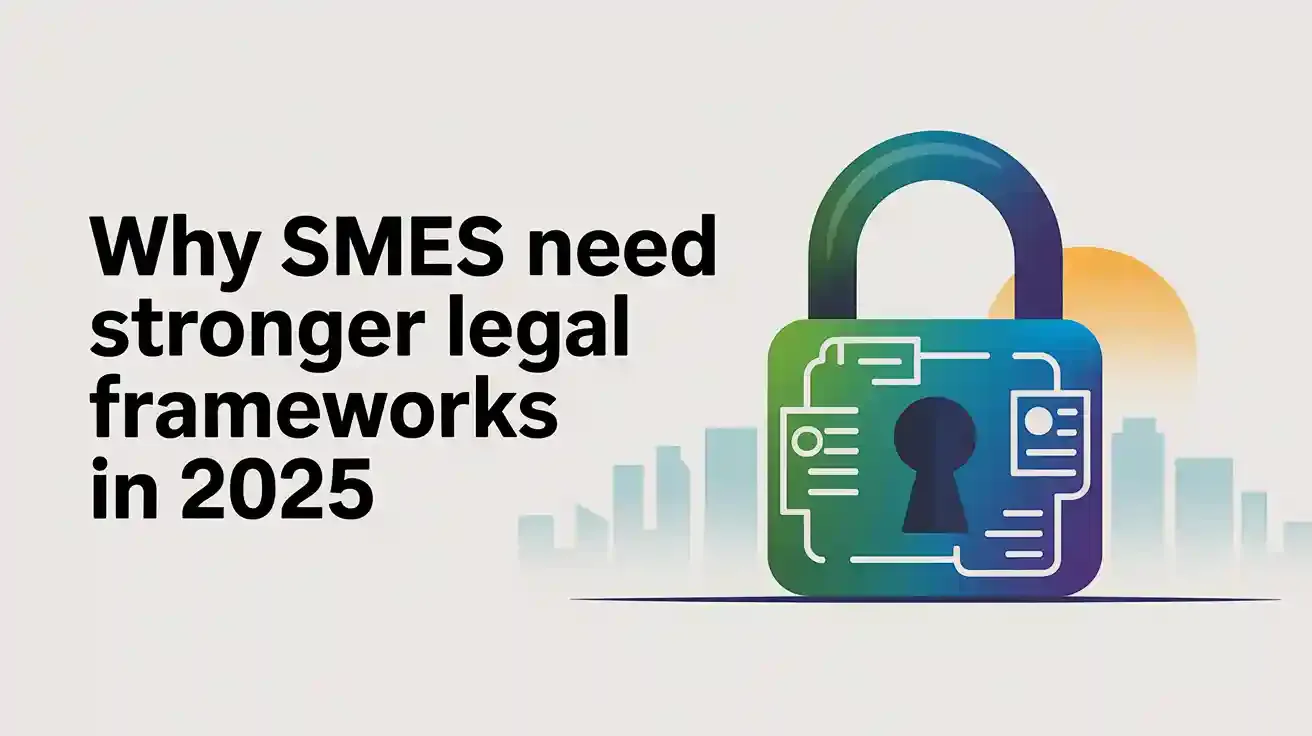There’s a silent struggle unfolding in India’s economic engine room. It’s not glamorous. It rarely makes headlines. But it underpins the success or failure of more than 63 million enterprises across the country.
I’m talking about the legal infrastructure around Small and Medium Enterprises (SMEs).
Not policy promises. Not MSME schemes. But the actual, enforceable, everyday legal protections that determine whether a business survives a delayed payment, an unfair contract, a cyber fraud, or an IP theft.
SMEs Are Building the Economy Without a Safety Net
SMEs contribute nearly 30% of India’s GDP and employ over 100 million people. Yet most operate with little to no legal backing. Contracts are poorly drafted. Disputes take years. Regulatory filings are complex. And when things go wrong, access to affordable legal recourse is rare.
This isn’t just an administrative gap, it’s a growth barrier. Because when legal systems don’t scale with the economy, trust breaks down. And trust is what SMEs need to scale, borrow, export, and hire.
The Legal Risk Isn’t Just Civil—It’s Systemic
From digital frauds to contractual abuse, SME risks have gone digital and cross-border. But the protections haven’t. A growing number of entrepreneurs now face liabilities they don’t fully understand—across GST compliance, data privacy, employee contracts, and digital transactions.
In 2025, legal literacy is no longer a nice-to-have. It’s survival strategy.
Compliance Can’t Be a Corporate Luxury Anymore
Big businesses have in-house counsel. SMEs have WhatsApp groups and trial-and-error. The gap is too wide. If India wants to be a serious startup and manufacturing nation, we must democratize legal infrastructure.
What does that mean? Pre-drafted templates. Online contract enforcement. Simplified dispute resolution. Sector-specific regulatory guidance. Legal aid that works at the speed of business.
We Need to Protect the Risk-Takers, Not Just the Giants
At Deutsche, we work with enterprises of all sizes. And we’ve seen the difference strong legal foundations can make. From onboarding vendors to raising capital, businesses that know their legal position move faster, negotiate better, and scale with confidence.
India doesn’t just need more SMEs it needs stronger SMEs. And that means building the legal scaffolding that helps them grow without fear.
Because in the real economy, it’s not the biggest that win—it’s the best protected.
— Chairman, Deutsche
